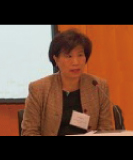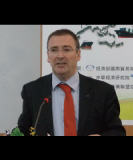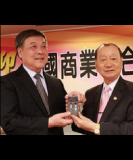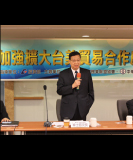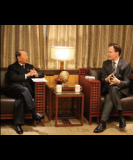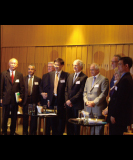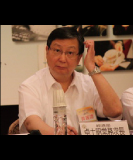You are browsing > Service Trade > Trade Info
WTO members commend efforts to monitor governments’ trade measures during COVID-19 crisisWTO
At a virtual meeting of the Committee on Market Access on 8 June, WTO members commended the ongoing efforts by the WTO Secretariat to monitor governments’ trade-related measures during the COVID-19 crisis. They discussed ways to ensure that the emergency measures introduced to restrict exports are lifted once they are no longer deemed necessary. Members also addressed 15 specific trade concerns, five of which were discussed for the first time.
Members thanked the Secretariat for the list of government notifications relating to COVID-19 which have been submitted to the Committee as well as the communications outlining unilateral measures aimed at facilitating trade during the pandemic. It was noted that while the number of notifications by members has been increasing, there was still room for improvement in making timely submissions in line with WTO rules and in providing prompt responses to information requests from the Secretariat.
Several members stressed that any emergency measure designed to tackle COVID-19 must be targeted, proportionate, transparent and temporary. It must not create unnecessary disruptions to supply chains that could have a detrimental impact on business, in particular micro-, small and medium-sized enterprises (MSMEs). The measures under review should go beyond export-restrictive measures and include other measures applied to fight the pandemic, they said. This includes tariff elimination, internal taxes and trade facilitation procedures.
Looking ahead, some members called on governments to honour commitments to roll back the temporary trade-related measures implemented to combat the COVID-19 pandemic and to ensure they do not become permanent. Other members suggested strengthening the monitoring role of the Committee to ensure transparency.
The Secretariat presented a report containing an updated list of members' official websites with tariff information and import statistics, as required by the new decision on the operation of the Integrated Database (IDB), the main source of tariff and import data at the WTO. The decision, adopted at the formal meeting of the Committee on 28 May 2019, seeks to better explain to members how data is collected and to improve on the previous procedures adopted in 1997. The Secretariat note includes updated information provided by members as of 20 April 2020.
Presentation by World Customs Organization
A presentation was made by the Secretariat of the World Customs Organization (WCO) on a series of measures taken by the WCO to assist members in combatting the pandemic. For example, the WCO put in place a repository of members' practices in response to COVID-19 and, together with the World Health Organization (WHO), a list containing the classification in the Harmonized System (HS) of essential medical supplies to tackle COVID-19. The WCO also launched a series of databases listing national temporary export restrictions and temporary import support measures for critical medical supplies in response to COVID-19.
The WCO reported on its work with the WTO, the United Nations Conference on Trade and Development (UNCTAD), the Commonwealth Small States Office (CSSO) in Geneva, the Global Alliance for Trade Facilitation (GATF), the International Air Transport Association (IATA) and the International Trade Centre (ITC) on developing a COVID-19 Trade Facilitation Repository, which is hosted by the Trade Facilitation Agreement Facility.
On 6 April 2020, WCO Secretary General Kunio Mikuriya and WTO Director-General Roberto Azevêdo issued a joint statement calling for efforts to minimize the disruptions to the cross-border trade in goods, in particular those essential to combat COVID-19, while safeguarding public health and the international supply chain. The joint statement strongly encouraged WCO and WTO members to ensure that any new border action is targeted, proportionate, transparent and non-discriminatory.
Trade in pharmaceutical products
The WTO Secretariat presented to members a consolidated list of products covered by an existing sectoral agreement on pharmaceuticals. The document was prepared at the request of the participants to the 1994 Trade in Pharmaceutical Products (also known as the Pharmaceutical Agreement, or the Pharma Agreement), which was negotiated on the margins of the Uruguay Round. The Agreement resulted in the elimination of tariffs for a large number of pharmaceutical products and the substances used to produce them. The list provides a comprehensive overview of all products covered by the initial agreement and its four subsequent reviews.
As a result of the Pharma Agreement and its subsequent reviews, participating members — Canada, the European Union, Japan, Macao China, Norway, Switzerland and the United States — agreed to eliminate customs duties and all other duties and charges for the covered pharmaceutical products and for the chemical intermediate products used in the production of pharmaceuticals.
As coordinator of the group, the EU thanked the WTO Secretariat for its work and said that the current crisis has put the Pharma Agreement in the spotlight. In the case of the EU, pharmaceutical products constitute a particularly large share of its trade — 9 per cent of EU27 exports and 5 per cent of imports are finished pharmaceutical products.
The EU pointed out that in 1994 the signatory parties covered over 90 per cent of global trade in pharmaceutical products. However, their participation had been reduced to only 64 per cent of global trade as a result of the increased share in pharmaceutical trade of other members.
Since disruption in global supply through a proliferation of export curbs and the existence of tariffs have deprived many of life-saving medicines, the EU said it is worth rethinking the relevance of the tariff commitments that WTO members took decades ago.
Specific trade concerns
Members addressed 15 specific trade concerns (STCs), five of which were discussed for the first time.
The Russian Federation, joined by other members, voiced concern about the European Union's new “European Green Deal” strategy, unveiled in December 2019. This aims at mitigating climate change by imposing ambitious actions, including considerable carbon emission reductions. These members indicated that the proposals included in the initiative, such as the carbon border adjustment mechanism, appeared to be inconsistent with WTO rules. They asked the EU to ensure that the new strategy does not disrupt international trade and to clarify the status of the relevant legislation as well as the sectors and products that would be affected.
In response, the EU recalled its commitment to climate neutrality (a net zero carbon footprint) by 2050. If the EU’s trading partners do not take comparable climate actions, there is a risk of companies moving their production abroad to countries with less ambitious climate measures, which can lead to a rise in global greenhouse gas emissions (carbon leakage). That would have to be addressed, the EU stressed. The EU added that the European Commission intends to present a proposal to fix a carbon price on imports of certain goods from selected sectors in 2021 (carbon border adjustment mechanism). Before that, it will carry out an impact assessment of the mechanism, taking into account WTO rules and trade agreements.
The Russian Federation expressed concern over the recent modification of the draft goods schedule proposed by the United Kingdom for its post-Brexit WTO market access commitments. The modifications would redenominate existing commitments from euros to pound sterling. Several members asked the UK to ensure that this conversion is fair and does not result in a loss of access to the UK market.
The United Kingdom referred to the UK government's “UK Global Tariff” announcement of 19 May. This is the most favoured nation (MFN) tariffs it intends to apply from 1 January 2021. This global tariff is a bespoke tariff tailored to the United Kingdom’s economy, and therefore it should be expressed in its national currency, it said. Accordingly, the UK's draft WTO schedule of commitments would also need to be adjusted and re-expressed in pound sterling. The proposed exchange rate (1 euro = 0.83687 GBP) represented the average of the daily exchange rates between 2015 and 2019, the UK stated.
Thailand expressed a new trade concern regarding Nepal's import ban on energy drinks. Thailand said that since the regulation entered into force on 17 June 2019, its private sector had been unable to export this type of product to Nepal. Thailand urged Kathmandu's authorities to notify this measure to the WTO and to provide any scientific evidence concerning the effects of energy drinks that would justify the ban. The United States joined in expressing this concern.
Nepal replied that the measures were temporary and responded to a “skyrocketing” import surge. This had resulted in a huge trade gap, posing severe challenges to the economic development of the country. Nepal noted that there is a need to assess whether those export products targeted at Nepali markets are in line with the required quality standards. It said Nepal remains committed to resolve this issue with Thailand bilaterally.
Under “other business”, the European Union expressed concern about Russia's import restrictions on refined fuel products. The EU inquired about the rationale for a measure which affects the exports of several EU member states, including those who have investments in the Russian oil industry. The EU asked Russia to clarify if it intends to notify the restrictions to the WTO. Russia answered that this measure was temporary and would expire on 1 October 2020.
Switzerland voiced concern over Turkey's decision to increase its applied duty rates on around 4,000 tariff lines, asking for clarification on the scope and duration of this measure. Turkey responded that all the tariff rates applied are within the limits of Turkey’s bound rates at the WTO and are duly notified through various channels.
Other trade concerns brought up in the Committee on Market Access included Angola's import-restrictive practices, China's customs duties on certain integrated circuits, the enlargement of the EU to include Croatia, the EU and UK's renegotiation of tariff rate quotas (TRQs) under Article XXVIII of the General Agreement on Tariffs and Trade, and India´s customs duties on telecommunications and other products. Members also expressed concerns about India's quantitative restrictions on imports of certain pulses, Indonesia's customs duties on telecommunication products, Mongolia's quantitative restrictions on the importation of certain agricultural products, and the selective tax on energy drinks, carbonated drinks and other products applied by three Gulf Co-operation Council countries.

